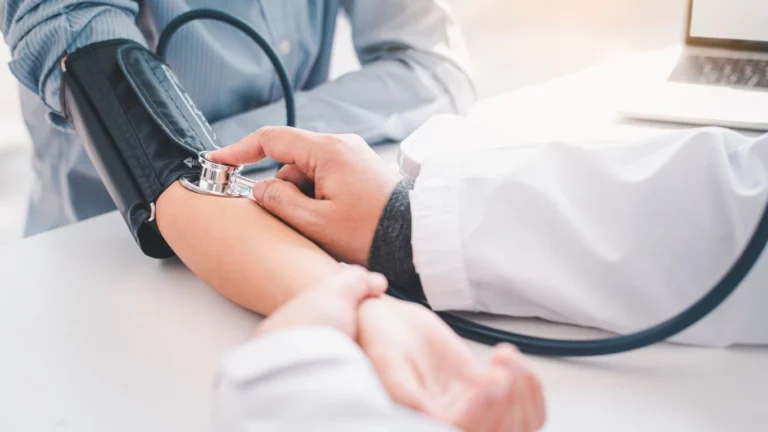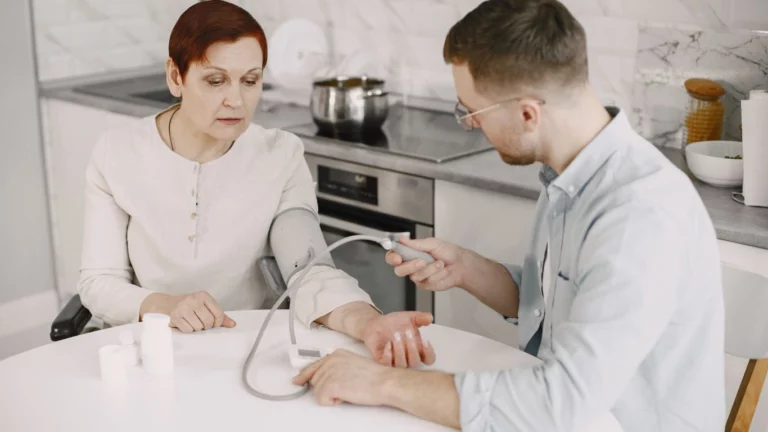The Connection Between Blood Pressure and Back Pain: Understanding the Link 🩺💥
Back pain is a common issue that affects millions of people worldwide, and it’s often linked to various underlying health conditions. One surprising connection that many might not realize is the relationship between blood pressure and back pain. High blood pressure (hypertension) and chronic back pain seem unrelated at first, but recent studies suggest that these two conditions can influence each other in significant ways.
What Is Blood Pressure and How Does It Affect Your Body?
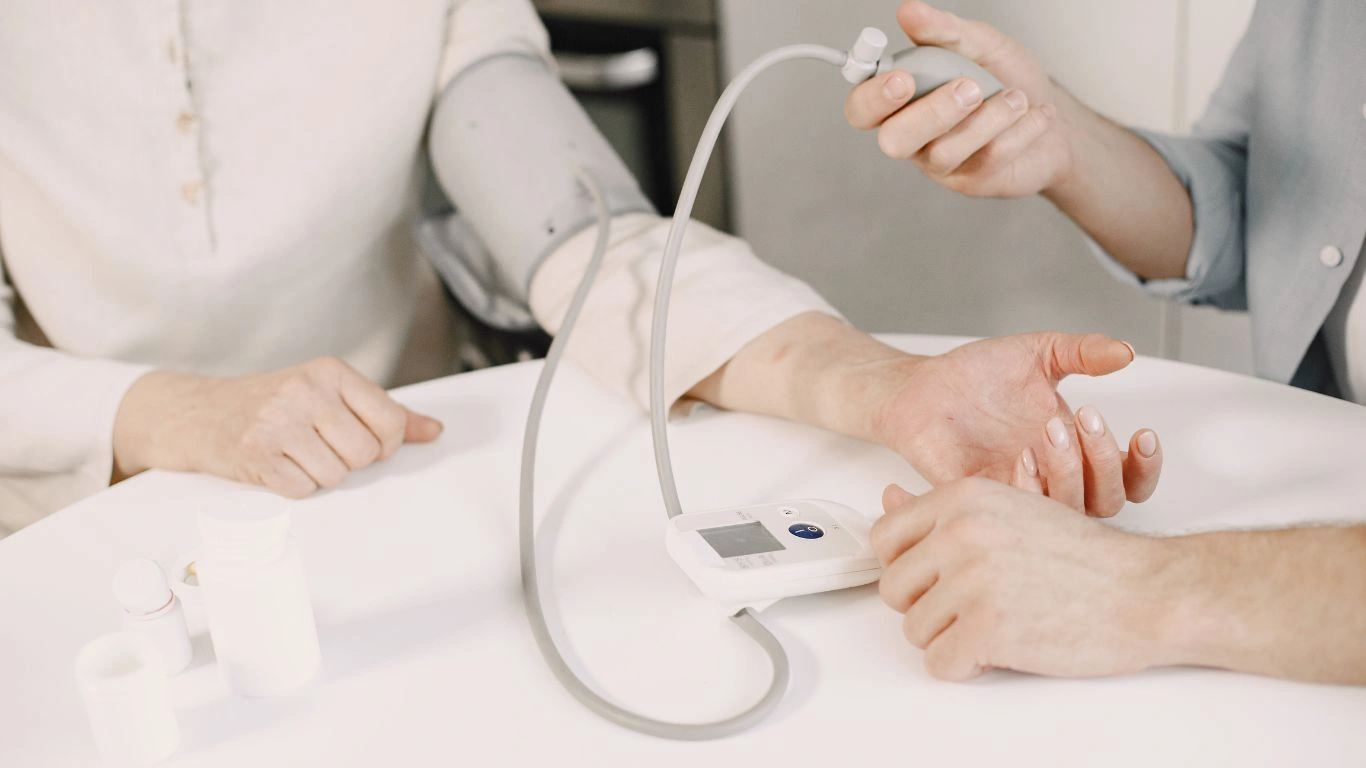
Blood pressure refers to the force of blood pushing against the walls of your arteries as your heart pumps it around the body. It is expressed in two numbers: systolic pressure (the higher number, when the heart beats) and diastolic pressure (the lower number, when the heart rests between beats). Healthy blood pressure typically falls around 120/80 mmHg.
When blood pressure is consistently high, it can lead to serious health issues, such as heart disease, stroke, and kidney damage. But did you know that high blood pressure can also affect your back?
How Blood Pressure Impacts Back Pain 🔍

1. Increased Pressure on the Spine
High blood pressure can lead to poor circulation, which affects how well your muscles and tissues receive oxygen and nutrients. This reduced blood flow to your back muscles and spine can contribute to inflammation and pain.
2. Hypertension and Muscle Tension
When blood pressure rises, the body can go into a “fight or flight” mode, leading to muscle tension. Over time, this chronic tension, especially in the back, can result in tightness, discomfort, and even chronic pain.
3. Medications and Side Effects
Some medications used to treat high blood pressure, such as beta-blockers or calcium channel blockers, can cause muscle pain as a side effect. This adds another layer of complexity when it comes to managing both blood pressure and back pain.
How Back Pain Can Affect Your Blood Pressure 🏥
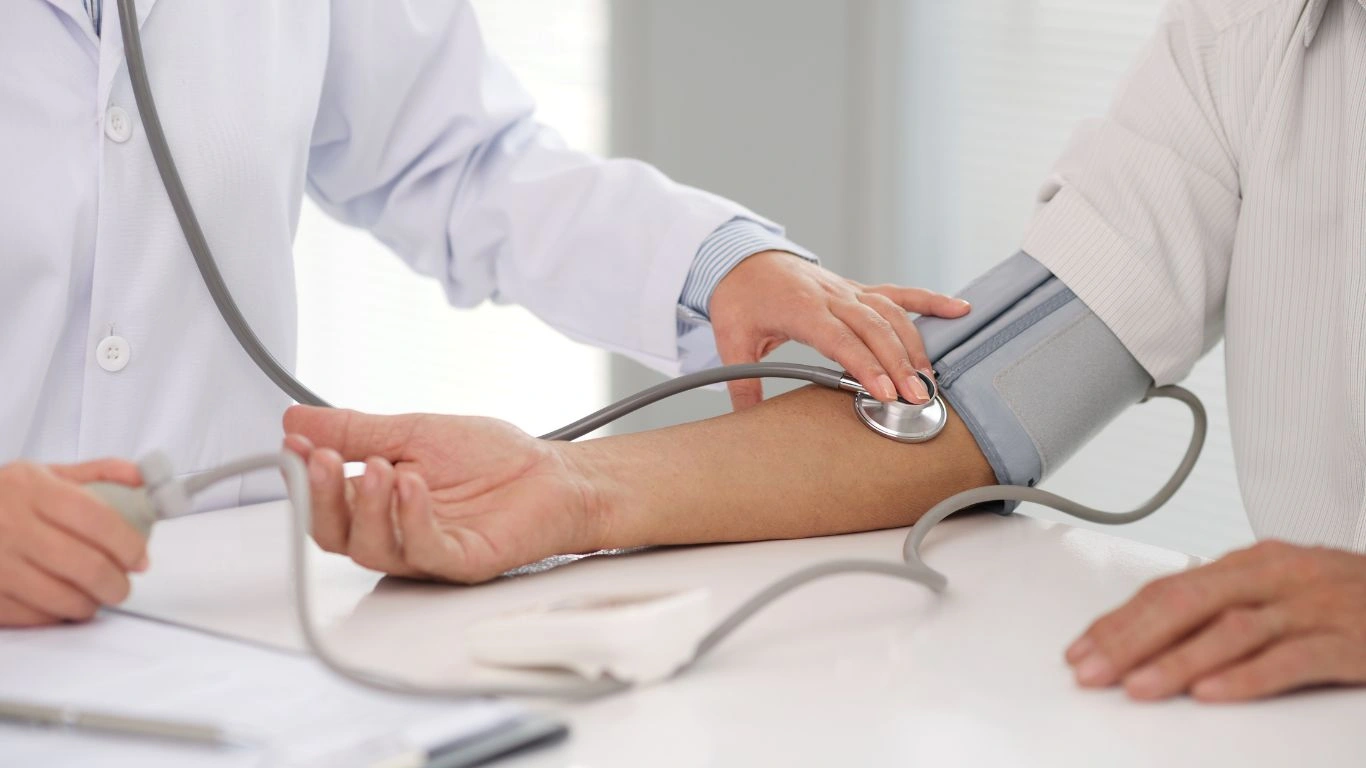
Back pain, particularly chronic pain, can have an impact on your blood pressure in return. Studies have shown that long-term pain can cause elevated blood pressure as the body responds to the stress. Constant pain can lead to higher levels of cortisol (the stress hormone), which in turn can raise blood pressure levels.
Troubleshooting Common Issues
1. Overcoming Pain Medication Dependence
It’s easy to rely on painkillers, but they might not be the best long-term solution, especially when high blood pressure is a concern. If pain medications are causing side effects like dizziness or blood pressure fluctuations, talk to your doctor about alternative treatments.
2. Stress Management for Blood Pressure and Pain Relief
Chronic pain often leads to stress, which can worsen both back pain and blood pressure. Stress management techniques like meditation, deep breathing exercises, and yoga can help to reduce muscle tension and lower blood pressure naturally.
3. Exercise: Finding the Right Balance
Physical activity is key to managing both conditions. However, it’s important to focus on exercises that strengthen the core and back without putting too much strain on the heart. Low-impact exercises, such as swimming, walking, or cycling, can improve both cardiovascular health and back pain.
Case Studies / Success Stories 💪
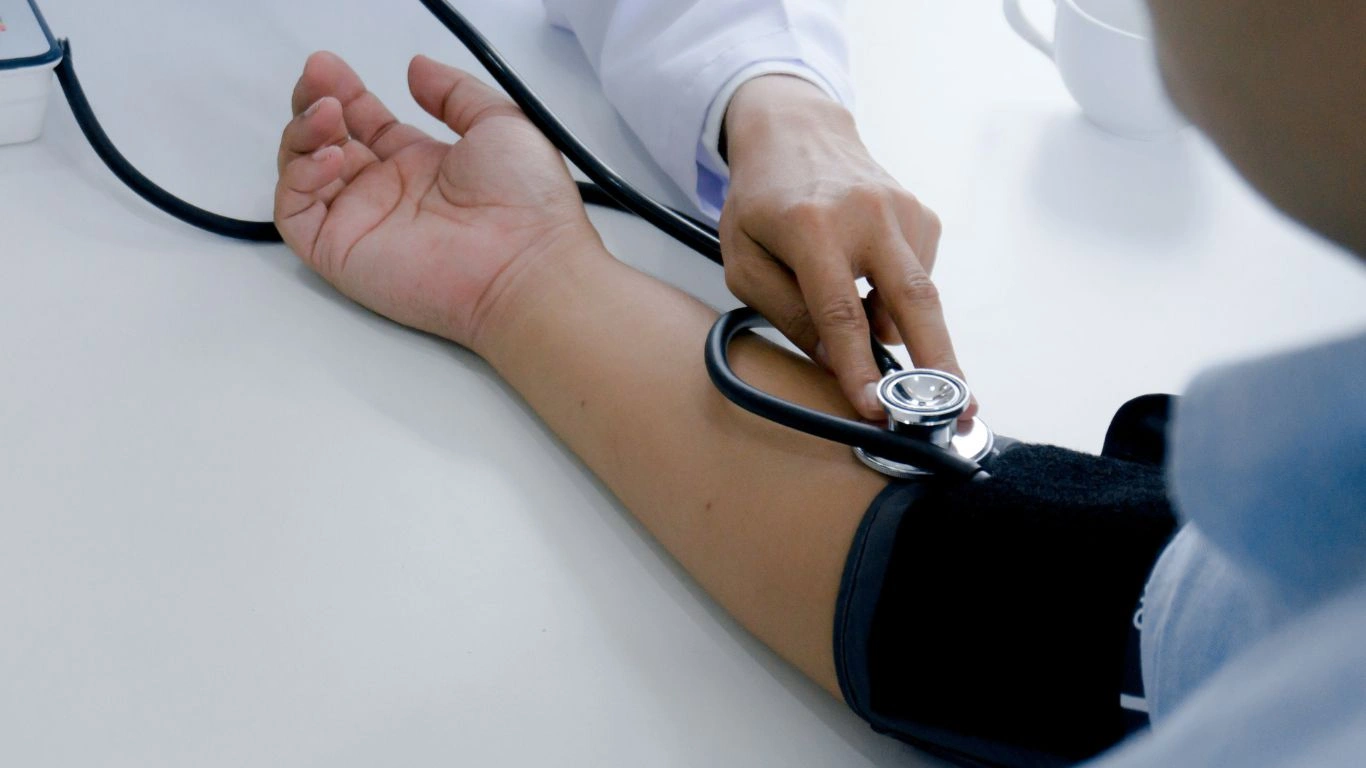
Case Study 1: Sarah’s Journey to Pain-Free Living
Sarah, a 45-year-old office worker, struggled with chronic back pain for years. She also had hypertension, which made her wary of intense physical activity. After consulting with a doctor, Sarah incorporated gentle exercises like stretching and walking into her routine, which helped lower her blood pressure and reduce back pain. By managing both conditions through lifestyle changes, she regained her quality of life.
Case Study 2: Mark’s Experience with Medication and Pain Management
Mark, a 60-year-old retiree, was prescribed blood pressure medication that caused muscle soreness. After discussing with his healthcare provider, he switched to a different medication that didn’t have those side effects. In addition, Mark began practicing mindfulness meditation to manage stress and saw improvements in both his blood pressure and back pain.
Key Takeaways / Summary
- High blood pressure and back pain can be interconnected: Poor circulation and muscle tension from hypertension can worsen back pain.
- Chronic back pain can lead to elevated blood pressure: Constant discomfort increases stress, which raises blood pressure.
- Stress management, exercise, and medication adjustments can help manage both conditions effectively.
- Seeking professional advice is crucial to finding the right combination of treatments for both blood pressure and back pain.
FAQs 📝
- Can high blood pressure cause lower back pain? Yes, poor circulation due to high blood pressure can reduce blood flow to your back, contributing to pain and discomfort.
- What are the best exercises for managing both blood pressure and back pain? Low-impact exercises like walking, swimming, or cycling are excellent for both managing blood pressure and strengthening your back.
- Can stress from back pain raise blood pressure? Yes, chronic pain can trigger the body’s stress response, leading to elevated blood pressure.
- How can I reduce back pain without increasing my blood pressure? Gentle stretching, yoga, and mindfulness practices can help relieve back pain without putting strain on your heart.
References 📚
- Smith, J. (2022). The Link Between Chronic Pain and Blood Pressure: A Comprehensive Study. Journal of Pain Management.
- Brown, M., & Lee, C. (2021). Hypertension and Musculoskeletal Disorders: An Overlooked Connection. Health and Wellness Review.
- American Heart Association. (2023). Understanding Blood Pressure and Its Impact on Your Health. AHA Publications.
Disclaimer ⚠️
The information in this blog post is for educational purposes only and should not be considered medical advice. Always consult with your healthcare provider before making any changes to your diet, exercise routine, or medications.
Call to Action 📢
If you’re dealing with both high blood pressure and back pain, don’t wait to get help! Talk to your doctor today to develop a plan that works for your body and lifestyle. And if you found this post helpful, share it with friends or family who might benefit from this valuable information!

Dr. Gwenna Aazee is a board-certified Internal Medicine Physician with a special focus on hypertension management, chronic disease prevention, and patient education. With years of experience in both clinical practice and medical writing, she’s passionate about turning evidence-based medicine into accessible, actionable advice. Through her work at Healthusias.com, Dr. Aazee empowers readers to take charge of their health with confidence and clarity. Off the clock, she enjoys deep dives into nutrition research, long walks with her rescue pup, and simplifying medical jargon one article at a time.






